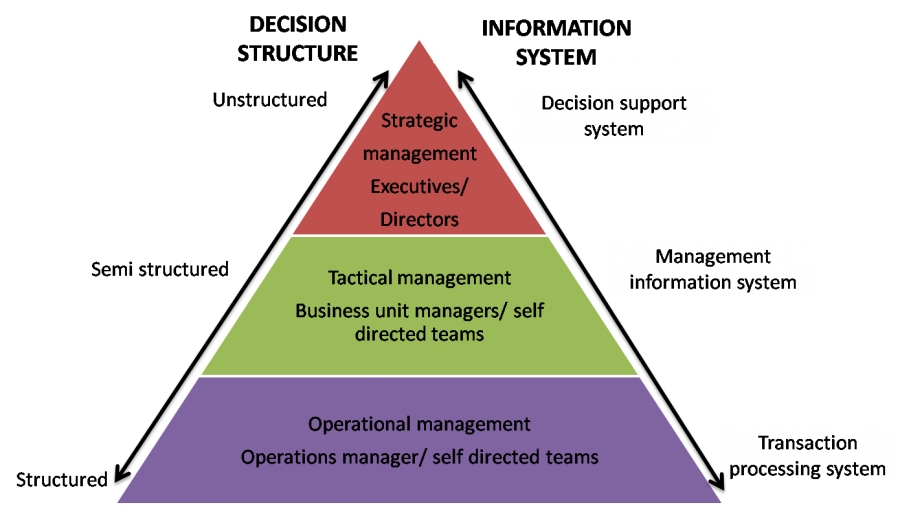Manager’s work in organisations, but not everyone in an organisation is a manager. For simplicity’s sake, we can divide organisational members into two categories: operatives or managers. Operatives are people who work directly on a job or task and have no responsibility for overseeing the work of others. In contrast, managers direct the activities of other people. Managers may also have some operative responsibilities; for example, an insurance claims’ supervisor may also be responsible for processing insurance claims in addition to overseeing the activities of the other customer officers in the claims department. However, our definition presumes that a manager has subordinates.
Three levels of management found in most organisations are:
Operational: Managers are involved in the supervision of non-management personnel. They are technical managers responsible for producing products or services.
Tactical: Middle managers translate the goals of the organisation into specific goals and activities. There is responsibility for the co-ordination of resources particularly at departmental level. They direct and control the work of others.
Strategic: Senior managers handle the efficiency and effectiveness of the organisation. They manage the interaction with the external environment. A long-term, future-oriented focus must set the most proper organisational mission and goals.
